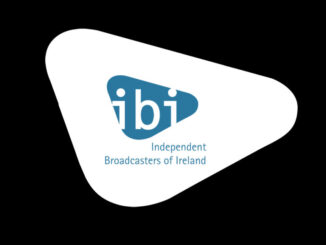The Independent Broadcasters of Ireland organisation has branded the proposed Journalism Schemes unfit-for-purpose and are calling for an even playing field for the sector.
The IBI, representing all 34 independent stations in Ireland, wants to discuss proactive ways to support the commercial sustainability of the sector for the long-term, with proposed measures including reforming the Broadcast Levy paid to Coimisiún na Meán and modernising the Codes and Rules that regulate output.
Both of these issues Coimisiún na Meán is currently running public consultations on.
IBI Chief Executive, Michael Kelly says the broadcasting policy in Ireland is totally letting down the nation’s independent radio stations and their millions of listeners, and is failing utterly to produce measures to support the real needs of radio stations in the sector.
In a statement, the body says:
“Broadcasting policy has clearly focussed its attention on providing hundreds of millions of euro of funding to RTE. Zero public funding is being provided to independent radio to support the provision of its core news and current affairs public service broadcasting. This is while RTE is being guaranteed in excess of €720 million in funding over three years (a figure which excludes RTE’s commercially generated revenue). The funding decisions for RTE appear to have been taken without any consideration being given to the effects on the independent sector. Independent stations believe that this situation will lead to serious market distortion.
Meanwhile a number of Schemes are being implemented, which quite simply will not work – they are mis-directed and impractical, and do not address the issues facing the sector in any meaningful way. The schemes are so unfit-for-purpose that despite intensive work by individual radio stations, they have been unable to find any way in which the schemes can be made work in helping stations meet their existing public service broadcasting obligations. This is because the schemes specifically rule out support for core news and current affairs and only fund “additional” content, they adopt a one-size fits all approach to different media sectors, and they promote precarious employment with no assurance that they will continue.
The schemes in their current form are described by the independent sector as “an ill thought-out gig economy solution” which is totally unsuitable for radio.
After more than 18 months of seeking changes to make the schemes work for the independent radio sector it was with great disappointment and reluctance that each of the independent individual stations, separately and after intensive efforts, concluded that the design and operation of the Schemes meant it was not possible to make them work. These were decisions by each of the stations which starkly shows how unfit-for-purpose the schemes are.
There is deep frustration and disappointment across the independent radio sector at the way it has been treated. The playing field has never been more uneven and despite everything broadcasting policy is favouring RTE over everyone else.
Now this has to change.
Independent stations stress that they are willing and eager to work with the Minister, the Department and the Regulator to make the necessary changes to schemes in order for them to meet the needs of the independent radio sector. However, they say that based on recent experience, this is a process which will likely take at least 18 months. They say it is imperative that interim solutions are found.
In the context of unsuitable schemes that have been years in the making and which are proving not fit for purpose, legislators and public representatives of all parties must now ensure that the upcoming Budget provides fair and proportionate funding for the independent radio sector.
Blindly following limited and unworkable recommendations from the Future of Media Commission, which were not based on a deep understanding of our sector, is resulting in a serious threat to media plurality and a competitive and independent sector.
Now is the time for TD’s and Senators to act.”
RadioToday has contacted Coimisiún na Meán and RTE for additional comment but no replies were received at the time of publication. […]






